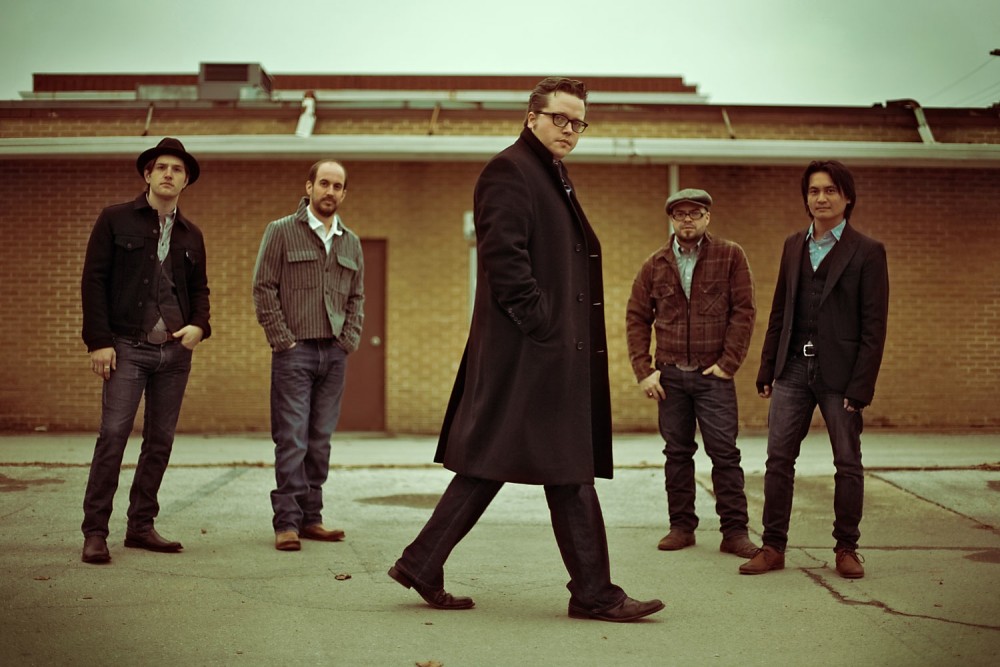Jason Isbell and the 400 Unit with Maria Taylor
Where: Turf Club, 1601 UNIVERSITY AVE. W.
When: Sat., May 28, 8 p.m.
Cost: $14
You canâÄôt really say anything about Jason Isbell without mentioning Muscle Shoals, Ala. The former Drive-By Trucker grew up not far from the Southern rock hub city, and it is so deeply engrained in his infrastructure that you could probably smell it on him. You can find it in his delicately gritty country/folk sound, his âÄúfine to meet yaâÄù demeanor and in his best post-Trucker album to date, the tenderly crafted, surly poetic âÄúHere We Rest,âÄù released in April.
Now four years, three albums and countless pulls of whiskey since leaving the Truckers, itâÄôs fair to say that Isbell has found his own identity and is comfortable in his new skin with the 400 Unit.
âÄúIn my mind I like to think IâÄôve gotten better at it over the years. I donâÄôt know if thatâÄôs the case or not. I donâÄôt know if I wrote my best stuff 10 years ago or if IâÄôm writing it now,âÄù Isbell said. âÄúI feel like IâÄôm more consistent now.âÄù
Isbell has made a career out of consistency. ThereâÄôs a certain reliability in his voice; he makes you believe in what he sings. Though heâÄôs a purebred Dixie, thereâÄôs plenty for Minneapolitans in his sound. HeâÄôs a cross between the barnyard romp of a Trampled By Turtles and the gentle folk of a Jeremy Messersmith or a Chris Koza.
IsbellâÄôs lyrical subject matter has been consistent throughout his career, as well. He isnâÄôt interested in your country clubs. HeâÄôs interested in the wrong side of the tracks, the people who stay âÄôtil the chairs go up at the bar, then one-eye it home.
âÄúI just spent most of my time around those folks,âÄù he said. âÄúThey say you should write about what you know. I donâÄôt go to church. I donâÄôt go to dinner parties. I like to run around with people who are dirt bags. People who are in rock âÄònâÄô roll bands and drink too much and act a fool all the time.âÄù
In addition to drinking too much and playing in a rock âÄònâÄô roll band, Isbell keeps his ear to the soil. The themes in âÄúHere We RestâÄù are distinctly 2011, from apocalyptic hysteria to general despair.
âÄúI do think there is a general sense of malaise and discomfort. I think people are out of control of their own lives right now,âÄù Isbell said. âÄúAnd I think a lot of that has to do with the economy and the fact that we are involved in an ever-changing amount of military conflicts.âÄù
If this good olâÄô boy with a geetar has dipped a finger into the collective unconscious, why does he sing of sketchy situations of a man providing a woman a drug haven (âÄúCodeineâÄù) and a girl who simply is having a bad day (âÄúDaisy MaeâÄù)? Perhaps itâÄôs because he doesnâÄôt go to dinner parties, but Isbell said that he feels like people are messing up right now. But he forgives them.
âÄúSometimes the only thing you can possibly do thatâÄôs in your hands is
f–k up.âÄù








